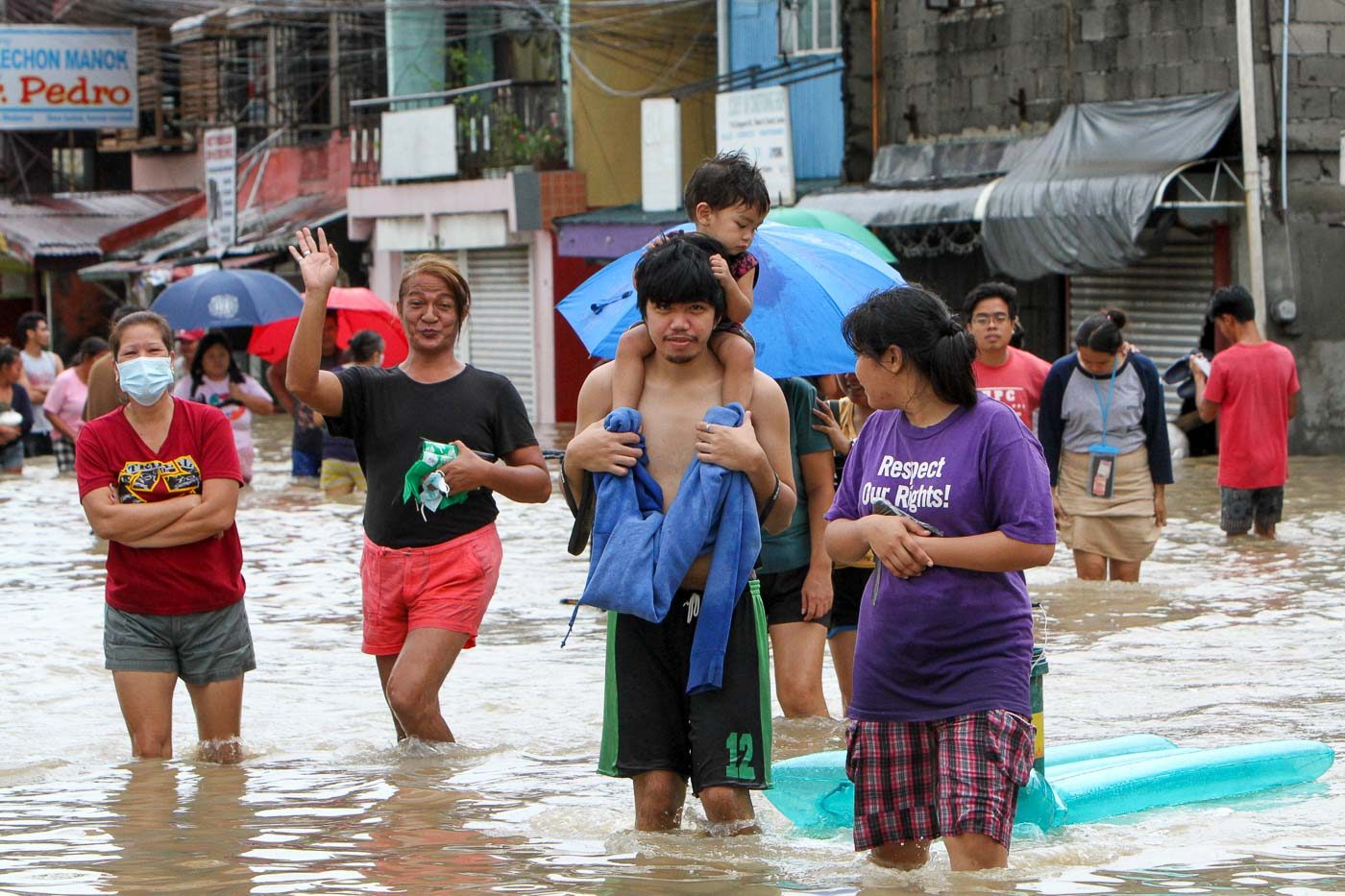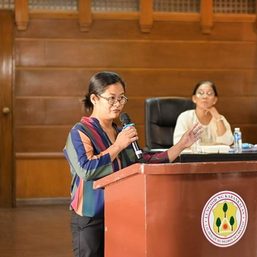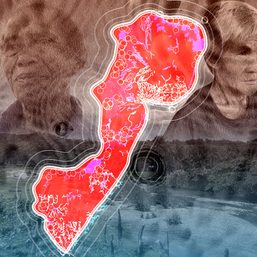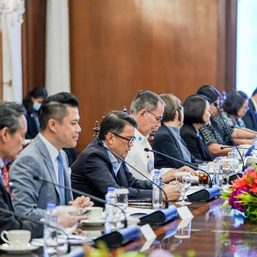SUMMARY
This is AI generated summarization, which may have errors. For context, always refer to the full article.

MANILA, Philippines – A ranking member of the House of the Representatives said that countries vulnerable to the impacts of climate change like the Philippines should band together and ask for more direct compensation mechanisms from the world’s top polluting countries.
House ways and means panel chairman Joey Salceda of Albay’s 2nd District made the statement on Sunday, October 30, following the devastation caused by Severe Tropical Storm Paeng (Nalgae) in several parts of the Philippines.
He pointed out that the recent storm, which at its strongest had maximum sustained winds of 95 kilometers per hour and gusts of up to 130 km/h, was “not even that strong, as far as typhoons in the October to November season go,” yet it killed at least 98 people.
“It’s the climate problem manifesting itself in the death toll,” Salceda said. “More communities are becoming vulnerable to the effects of stronger weather events.”
Salceda hopes that the Philippines and other countries will raise the issue of accountability from major polluters like the United States and the European Union in the 2022 United Nations Climate Change Conference set in November in Egypt.
The veteran lawmaker is part of the Philippine contingent to the summit, commonly referred to as COP27.
“International aid and green financing are not enough. There has to be some form of compensation to the most vulnerable and affected countries,” he asserted. “If we are soft on this position, we throw other climate-vulnerable countries under the bus. So, we have to be strong on loss and damage.”

What Salceda pushes for exactly
In UN climate change discussions, the term “loss and damage” is used to refer to consequences “that go beyond what people can adapt to, or when options exist but a community doesn’t have the resources to access or utilize them,” as explained by research non-profit organization World Resources Institute.
The landmark 2015 Paris Agreement, of which the Philippines is a signatory, puts a premium on addressing and minimizing loss and damage due to climate change.
Salceda insisted that the Philippines has the moral high ground “to fight for the principle of loss and damage.”
“If the world won’t achieve consensus on loss and damage, we at least need a global ‘quick response fund’ similar to our calamity fund, but funded by countries according to their pollution contributions, and accessed by countries as soon as climate-related disasters affect them,” he said, adding that a committee composed of representatives from both developed and developing countries can administer the fund.
How vulnerable the Philippines is
The most recent World Risk Index report, published in September by Germany-based Bündnis Entwicklung Hilft and the Institute for International Law of Peace and Armed Conflict, assessed the Philippines as having the highest disaster risk out of 193 countries.
The World Economic Forum, in its 2022 Global Risks report, also said that extreme weather events were among the top five risks for the Philippines.
Severe Tropical Storm Paeng, which battered numerous parts of the Philippines over the weekend, left dozens of people dead, damaged thousands of houses, and affected over two million people, including over 200,000 individuals who sought refuge in evacuation centers.
A total of 158 cities and towns have been placed under state of calamity as of Monday morning, October 31, allowing their local government units to easily access emergency funds. – Rappler.com
Add a comment
How does this make you feel?








![[OPINION] The First Mode conundrum](https://www.rappler.com/tachyon/2024/03/tl-first-mode-conundrum-03232024.jpg?resize=257%2C257&crop=283px%2C0px%2C720px%2C720px)

There are no comments yet. Add your comment to start the conversation.